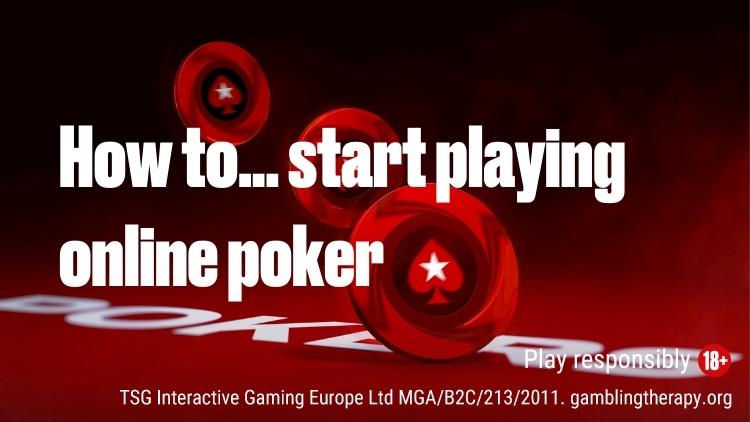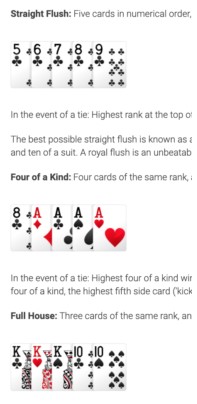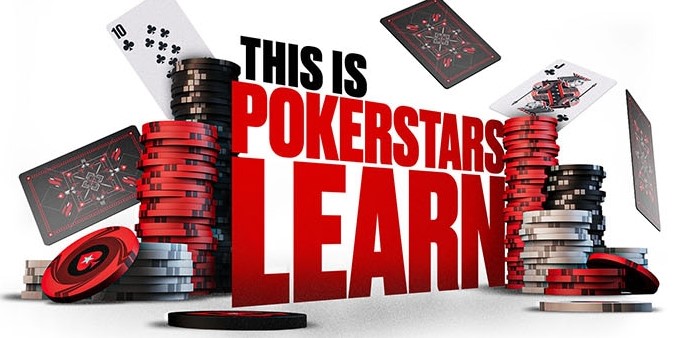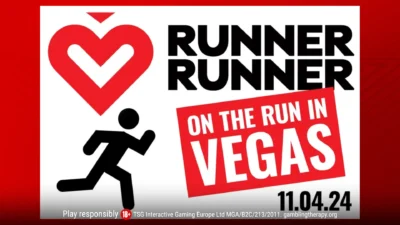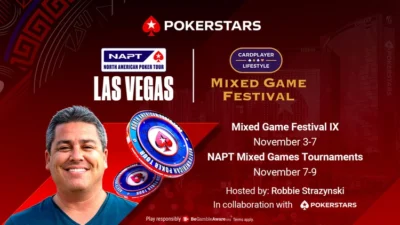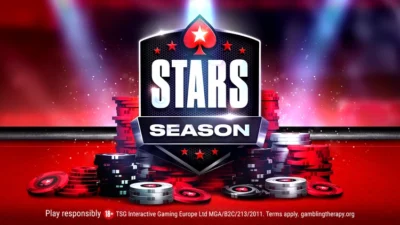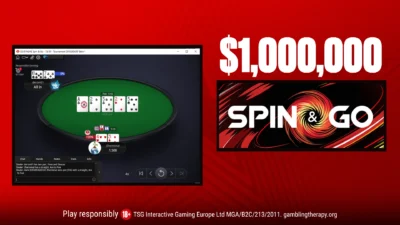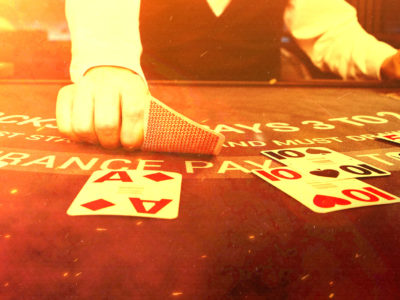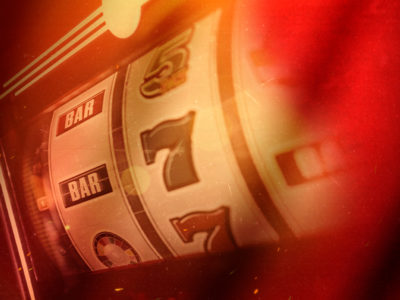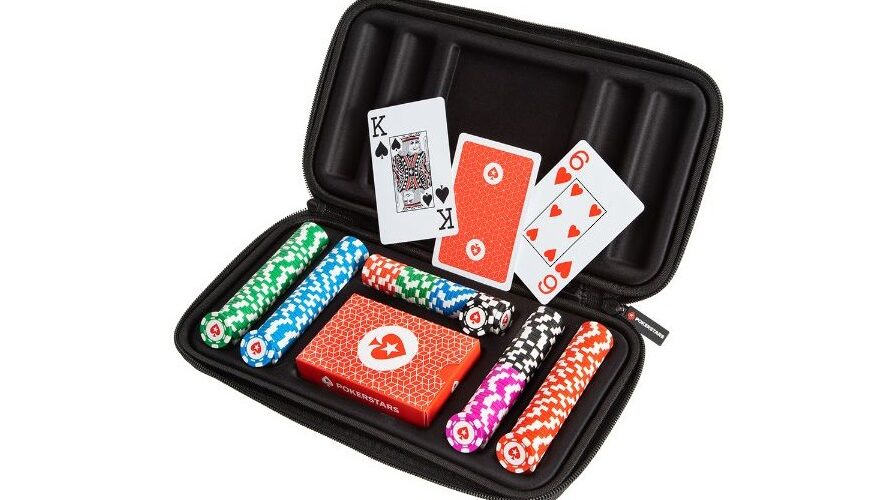This article was last updated 13 December 2022.
Poker is one of the most popular card games in the world, and it has never been more easy to play. Which is great news if you’re looking to get started playing online poker over the holidays.
What once required either a visit to a casino or an invite to a home game now demands nothing more than a device connected to the internet. You can download the PokerStars client wherever you are and get playing almost immediately – on your phone, tablet or computer.
And if you’d prefer to give the traditional home game a try, check out everything you need to know about playing Home Games.
Here’s a simple five-step guide on how to get started playing online poker. You might end up spending many days, months, years on each point as you progress. But every journey always has to start with the first tiny step.
1. LEARN THE RULES
Perhaps everything in this guide is going to sound obvious, particularly the early stages. But these will be your foundations on which you build your understanding of poker, and you need to make sure they’re strong.
It’s crucial when you get started playing online poker that you understand the rules of poker. These might not be the rules your granny taught you. They’re probably not the rules you learned while watching people play poker in movies. These are the mechanics that will keep the game going on every regulated online poker site. And which you need to understand fully before making any costly mistakes.
The good thing while playing online is that all of the game management is taken care of automatically. You don’t need to count out chips or stack them. You don’t need to remember when it’s your turn (you’ll be prompted instead). However, you’ll need to understand what’s going on, which means:
You’ll need to:
Familiarise yourself with hand rankings. In other words, you need to know how and why you’ll win or lose a pot.
Learn how the action progresses around the table, and what to do when it’s your turn to act. You only ever have a limited number of options, but you’ll need to know what they are.
Learn what most of the basic poker terms mean.
Remember, the online software won’t allow you to break any of these rules. So you won’t suffer any penalties as a result of any accidental indiscretions. But you need to know all the rules before you play. It’s as simple as that.
2. PLAY FOR FREE
You can read a lot about poker, and watch tons of it on TV and online (see below). But there’s really no better way to learn the ins and the outs than to actually play the game.
Back in the days before online poker, it could prove quite costly to go from absolute beginner to even slightly accomplished player. But that’s not the case anymore. There are literally thousands of poker games going on all the time online for which you don’t need to invest a penny to play.
The absolute best way to get the hang of poker at the start of things is to play for what’s called “play money“. These are tokens, given out for free, with which you can join games. The mechanics are identical to any real money poker game. And this is the best way to get to grips with how the games actually play out.
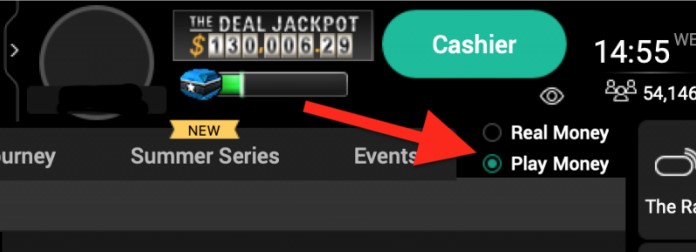
How to select play money games in the PokerStars software
So download the PokerStars client wherever you are in the world, follow the instructions to set up an account, then make sure the radial button in the top right corner is set to “Play Money”. A full selection of games appears below.
You are given 35,000 Play Money chips when you open an account, and you can “top up” for 15,000 every four hours, totally free of charge. Read the guide to topping up.
Many people never want to play for anything other than play money. And there’s absolutely nothing forcing anyone to move into real money games. But if you want to take the plunge, it’s pretty easy to deposit a small amount in your PokerStars account and apply what you have learned at the play money tables in an environment where the money is for real.
You absolutely must be aware of the risks of playing poker for real money, and make sure you read and understand every word of the PokerStars’ Responsible Gaming page. It’s the single most important page on any PokerStars branded website, so read it thoroughly, and then read it again.
3. STUDY, STUDY, STUDY
Poker has changed a lot over the past couple of decades, and players have got much better, on the whole. They’re more aware of good strategy, they’re more disciplined and they’re much more skilled.
The principal reason for this improvement is the accessibility of poker-related media content. It’s never been easier to watch other people playing poker, or to find instructional material to improve your game. You’ll also also find it’s completely normal to study poker strategy, rather than just leaping in and hoping for the best. It’s not only the nerds who will swot up on the game.
As you get started playing online poker you should definitely check out PokerStars School, where there are a wealth of articles and videos aimed at players of all standards and experience. It will give you a taste for good strategy and lay an important bedrock for your later development.
After that, there are many other avenues to explore.
Twitch streams allow you to watch real players playing real games in real time, and it’s both educative and entertaining. PokerStars has its own Twitch channel, plus a list of streaming representatives, including Lex Veldhuis, Benjamin “Spraggy” Spragg and Fintan “easywithaces” Hand. At least one of them will be streaming every night. The general idea is to watch and learn.
You can also numerous places where you can arrange one-to-one poker coaching. Typically, more advanced players go to coaches in a bid to get incrementally better or to plug leaks. But many coaches will also take on beginners — usually for a fee. A quick Google will bring up plenty of options.
There are still plenty of discussion forums online where people talk strategy. Two Plus Two, Reddit and Poker Strategy are just three of the best known.
And don’t forget, if you’re tired of staring at a screen all day, books still exist. Our friends at D&B Publishing offer a number of poker titles, while the Gamblers General Store in Las Vegas has probably the widest selection of poker books in the world. They mail globally.
In short: study the game. Learn from people who know. They have made all the mistakes already. There’s no need for you to make them too.
4. BROADEN YOUR HORIZONS
With solid foundations and a strategy in place to improve, you might think about broadening your horizons a little and finding what type of poker suits you best. You can experiment at PokerStars with so many different variations and game types. Perhaps switch up from cash games to tournaments or Sit n Gos; try your hand at Omaha instead of hold’em.
Almost all people who play poker regularly have a preferred game and it sometimes takes a while to find where you’re most comfortable.
This might also be the time you start keeping records of your game play. You’ll soon figure out where you’re spending most of your time and recording your best results. The rule about records is that you have to be honest. There’s no point in massaging the figures to suit what you want to be true.
As ever, remember the mantras of responsible gaming as you experiment. Play for entertainment, and not as a way of making money. And only play with money that you can afford to lose.
5. MAKE A PLAN
What do you want to achieve from playing poker? For a massive majority, the only real goal is to have fun. And if you find that you have enough fun by playing online once or twice a month for low stakes, then that’s precisely what you should carry on doing.
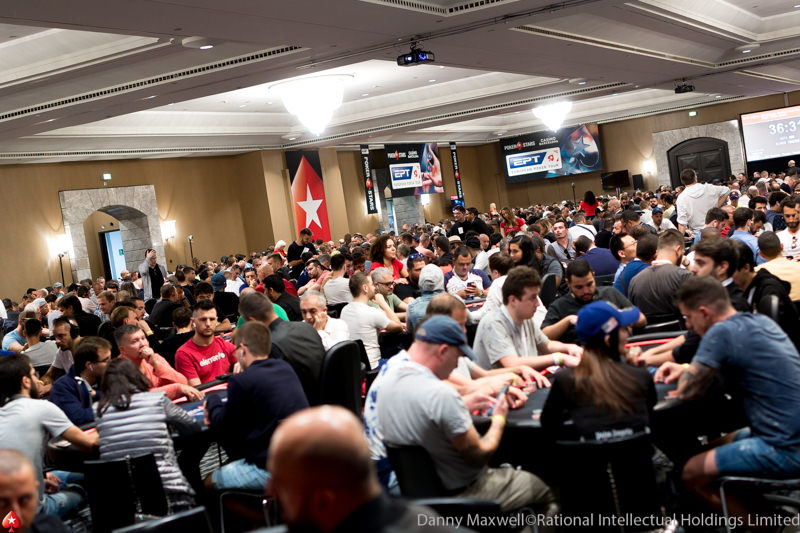
For others, poker opens up plenty of other opportunities. Maybe you’ve always wanted to play on the European Poker Tour (EPT)? Perhaps you want to try playing more regularly, and see if it’s something you could do full time.
If you harbour specific ambitions at the poker table, it can help to make a plan that can help you achieve it.
You’ll need to figure out your bankroll, and ensure that your plan is perfectly affordable. You can set yourself goals for one month, two months, six months, a year. And don’t be afraid to amend or abandon if things aren’t what you expected.
There are so many options available to the contemporary poker player that you can pretty much decide on any goal and then find a way to pursue it.
Back to Top
View Other Blogs




